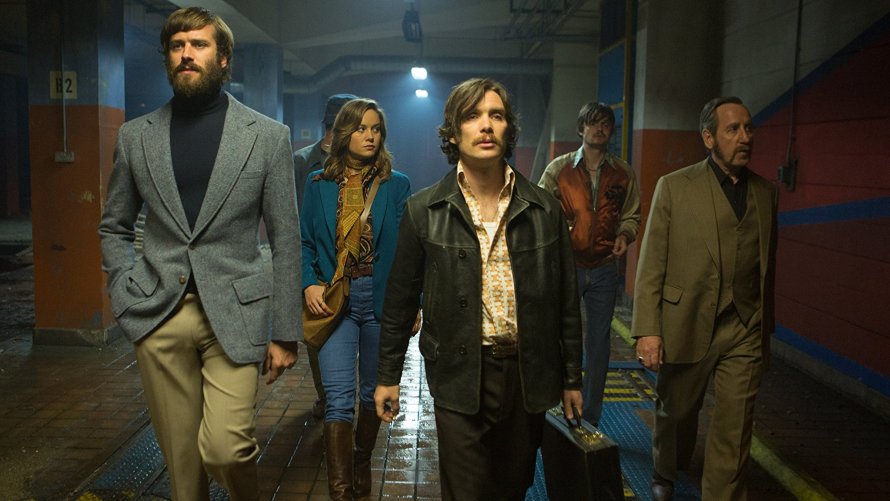
In the Vague Visages Writers’ Room on Facebook, freelancers were asked to comment about their favorite under the radar films of 2017. Enjoy!
Mike Thorn (@MikeThornWrites), Claire’s Camera

Sang-soo Hong‘s Claire’s Camera positively feels organic. Its dialogues carry the energy of skillful improvisation, and many of its scenes seem organized more around spaces’ and buildings’ compositional possibilities than around strict dramaturgical rules. There is dramatic tension at the film’s center, sure, but Claire’s Camera resonates most when it’s simply observing friendly interactions between Claire (Isabelle Huppert) and Jeon Manhee (Kim Min-hee). Much like On the Beach at Night Alone (also released this year), Claire’s Camera rather overtly and meta-consciously addresses the publicly known love affair between Hong and Kim Min-Hee. Unlike On the Beach at Night Alone, though, Claire’s Camera mostly elides moral severity and negative affect, electing instead to explore formal and narrative freedom. The film is driven above all by its unique sensibility — levity, curiosity and a generously positive energy. For that reason alone, it stands above many of the year’s most popularly praised releases.
Colin Biggs (@wordsbycbiggs), Free Fire

Free Fire did not do well financially when it opened in the United States on April 21st, 2017. In fact, the film made less than $2 million upon release ($1,799,312, specifically). As the end of the year approaches, it still appears that Free Fire won’t be remembered much — an unfair fate for a film that energized the pre-May movie release doldrums. Ben Wheatley so succinctly infuses Marin Scorsese and Quentin Tarantino’s DNA into a warehouse shoot-em-up, but he continues to evolve his own voice as well — one that had a formalist grasp of where everything was in the chaos of bullets flying overhead. Equally impressive is the fact that Free Fire manages to succeed as one of the few shootout films to avoid sensationalizing and glorifying the violence onscreen. Each desperate hood’s hardened criminal facade disappears as soon as the first bullet whizzes by. The incredible ensemble cast alone (featuring the dashing Armie Hammer and Cillian Murphy, a fresh-off-her-Oscar Brie Larson and Sharlto Copley at his most palatable) should have warranted a larger profile than it received. Instead, Free Fire will just have to settle for being a curiosity that gets discovered down the line, while future generations tell us how wrong we got it.
Alex Landers (@1CriticalBitch), Landline

Gillian Robespierre’s Landline isn’t an overtly political film, and perhaps that’s why it seemed to come and go this summer. But the story, about two sisters who discover their father’s affair, is no less revelatory for what it’s really about — which is not the men in their lives, the cheating or the questionable eyebrow piercings of the mid-90s. What makes Landline special (not unlike Robespierre’s 2014 film Obvious Child) are the relationships shared between women of multiple generations. Watching older sister Dana’s (Jenny Slate) personal breakdown inspire direction in her younger, slightly wilder sibling, Ali (Abby Quinn), feels more real and honest than any other relationship I’ve seen on screen this year. The search around town for their father’s mystery mistress is awkward and hilarious, but no more so than the notion that they must keep it a secret from their mother (Edie Falco), which is both precious and naive. And if that’s the hallmark thus far of Robespierre’s work — that women can be deeply aware and affected by reality, while still finding a bliss in the chaos — then this is a filmmaker whose quiet, loud, awkward and confident work is something we should all be watching.
Caroline Madden (@crolinss), Polina

There are shades of Billy Elliot in the story of Polina, a gifted and young Russian ballerina who transcends her working-class squalor through an acceptance at the renowned Bolshoi Academy. But, a midway sequence dismantles any further similarities. The classical music of Polina’s rigorous ballet class gives way to an industrial electronica score by 79D as she flails her body and kicks up the snow in frenetic, freewheeling abandon. From here on in, Polina dances to the beat of her own drum. She abandons the Bolshoi for a modern dance company, which she then leaves for an even more experimental dance group and side job as a cocktail waitress in a punk dive bar. Polina becomes a mesmerizing portrait of the artistic process, where the journey to your own ingenuity matters more than your achievements. Directors Valiére Müller and Angelin Preljocaj (also the choreographer) balance an intimate and kinetic style that marvels the dancer’s body parts as they flex and point with sweeping full-scale and uncut views of their performances; the final dance is one of the most exquisite moments in cinema this year. Polina pairs nicely with another 2017 under the radar film, Elvira Lind’s documentary Bobbi Jean, which also traces a woman’s contemplation of dance and selfhood with transfixing grace.
Marshall Shaffer (@media_marshall), Trophy

One of the many reasons that it’s great to write for a site like Vague Visages is that many of the films I considered for this post have already been reviewed! (So, please don’t forget Casting JonBenet, The Lovers or Beach Rats.) It’s been a great year for documentaries, particularly ones tapping into the elusive zeitgeist. While Trophy is now readily available to stream, it’s too bad that it wasn’t rentable during the short window in which the White House announced it would allow the import of trophy elephants into the United States. Directors Shaul Schwarz and Christina Clusiau use human stories to illuminate the many sides of a difficult issue, spanning conservation, legislation, crime and testosterone tourism. Unlike most “issue” documentaries, Trophy does not leave its viewers with a charge or a link to visit. The film simply lays out the complicated web connecting the players in the world of game hunting and conservation, asking us what compromises we think are justified to satisfy different parties.
Categories: Featured

You must be logged in to post a comment.